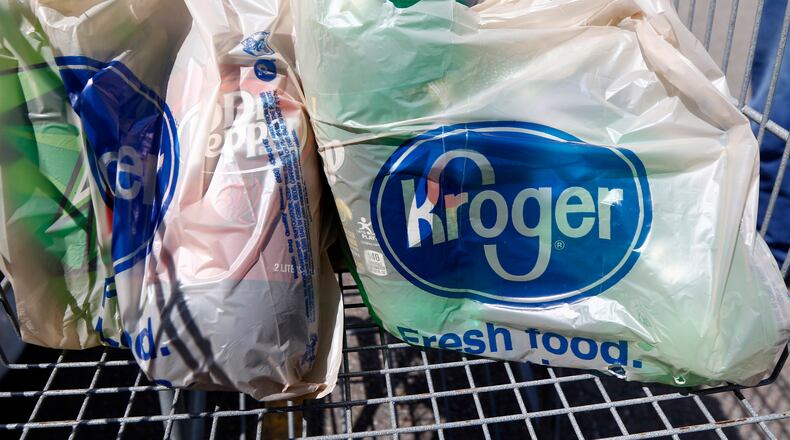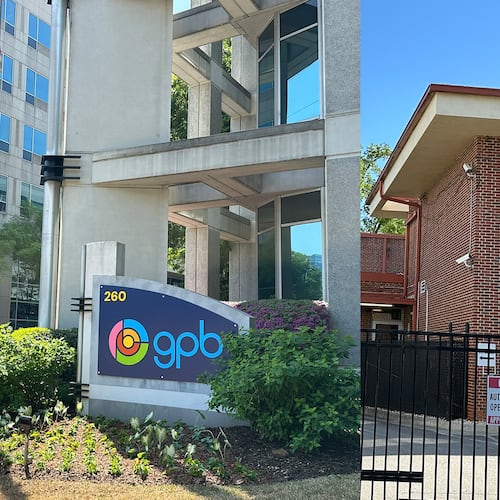Grocery delivery services are scrambling to meet surging demand as more Georgia cities order their residents to stay at home to stanch the spread of the coronavirus.
Skyrocketing web traffic for delivery services run by Instacart, Walmart and others has prompted days-long delays in residents receiving their groceries. Before the outbreak, many companies were able to deliver their goods within hours of a customer ordering them.
New research from the consulting firm Brick Meets Click estimates that nearly 40 million households, roughly 31%, have used an online grocery delivery or pickup service in the past month. That’s more than double the monthly users from seven months ago, according to the group.
National grocery chains have invested heavily in their online infrastructure in recent years but have still struggled to keep up with recent demand, according to The Wall Street Journal.
Georgia-specific shopping figures were not available, but the strain being experienced by delivery giants was evident online Monday afternoon.
Walmart had no Atlanta delivery windows available for Monday or Tuesday. Shoppers couldn’t get groceries from Kroger and Publix before Tuesday evening.
Amazon Fresh had no delivery slots available through Wednesday. The online retail Goliath, which owns Whole Foods, recently said it was working to secure more high-demand products.
“We are working around the clock with suppliers to get the items we know customers need back in stock as quickly as possible,” the company said on its website.
Local supermarkets also have experienced in-store shortages of some goods as many metro Atlantans have stockpiled toilet paper, hand sanitizer and frozen food. Experts don't expect the dearth of such necessities to last, but it's still causing short-term logistical headaches for stores.
Kroger spokesman Felix B. Turner said delivery times “are running longer than usual.”
“We are seeing greatly increased demand for curbside pickup and appointments at many stores are being booked several days in advance,” he said.
Many retailers have boosted hiring and pay to try to meet demand. Kroger’s Atlanta division — which includes Georgia, South Carolina and eastern Alabama — has hired 2,000 people in the last two weeks, Turner said, and is seeking to fill 400 additional openings. Amazon recently announced it would hire 100,000 full and part-time positions to keep up with demand.
Many of those same companies, however, have faced pushback from workers saying they aren’t doing enough to protect them from the virus – or properly compensate them for being willing to work in harm’s way.
Amazon warehouse employees in Staten Island, N.Y., walked out on Monday to protest the company’s decision to continue operations after a worker there tested positive.
Similar plans were afoot at Whole Foods and Instacart, which relies on a network on independent contractors to shop for its customers.
In an online post, the labor organizing group Gig Workers Collective said Instacart has refused to provide personal protective equipment to its contractors and said other safety measures the company put in place don’t adequately protect the personal shoppers.
Instacart on Sunday evening announced plans to “distribute new health and safety supplies for full-service shoppers” and introduced a new default setting for customer tips to help shoppers earn more. But that did not appear to appease the protesters.
Locally, Instacart delivers products from Costco, CVS, Fresh Market, Kroger, Publix, Sam’s Club, Target and other retailers.
Local restaurants have also jumped on the online delivery bandwagon as they seek to stay alive now that gatherings of more than 10 are prohibited in Georgia and a growing number of cities have banned in-person dining.
Many eateries that previously did not offer delivery have signed up with third-party apps such as UberEats, DoorDash and Postmates, and a few, such as Taqueria del Mar in Peachtree Corners, have even shifted some of their own employees to deliver within a few miles of the restaurant.
“Taking orders on the phone or online at a dramatic pace as everyone wants to order at the same time — that has been a challenge,” said Andrew Hoppen, the owner of Taqueria del Mar.
Analysts are unsure of whether the surge of online delivery services will continue after the coronavirus pandemic dissipates, but some believe it will permanently change some people’s shopping habits.
"Even though some households will not stick with online grocery pickup or delivery services post-crisis, others will shift to this method of shopping going forward for a host of reasons," Bill Bishop, the chief architect of Brick Meets Click, wrote last week. "This is an important shift for the industry."
Staff writers Ligaya Figueras and J. Scott Trubey contributed to this article.
About the Author
Keep Reading
The Latest
Featured




